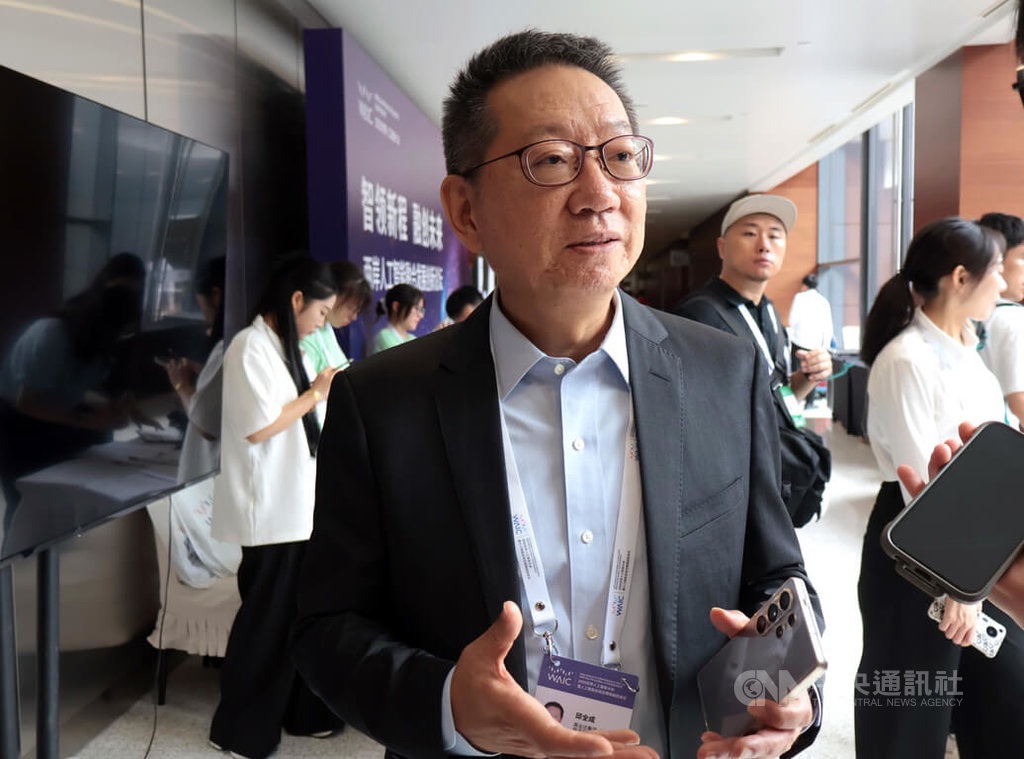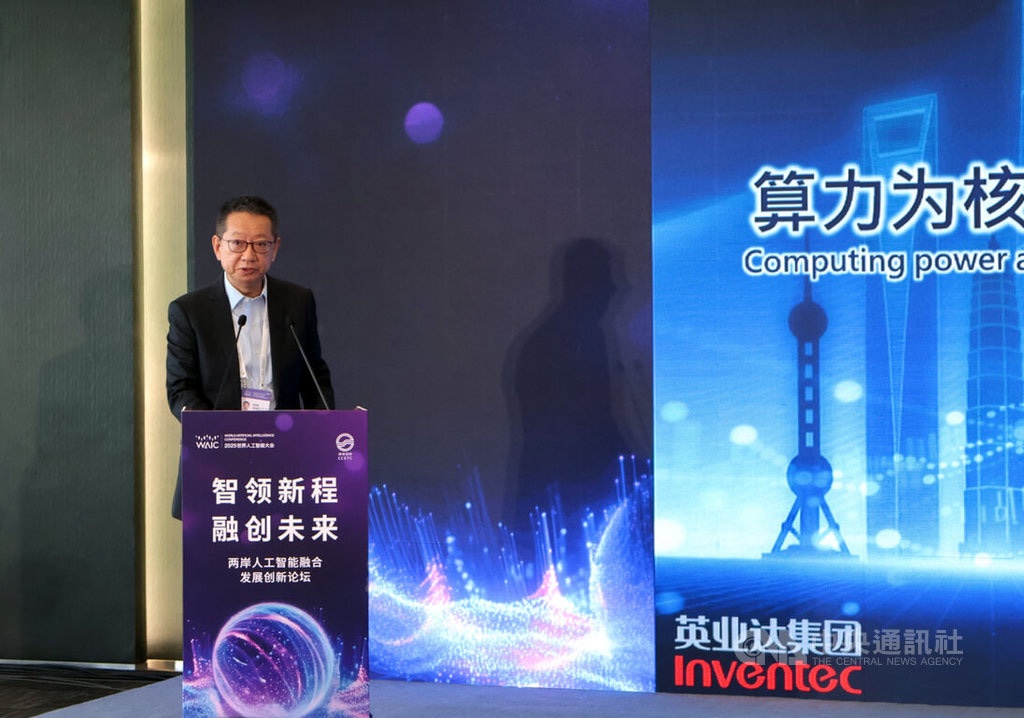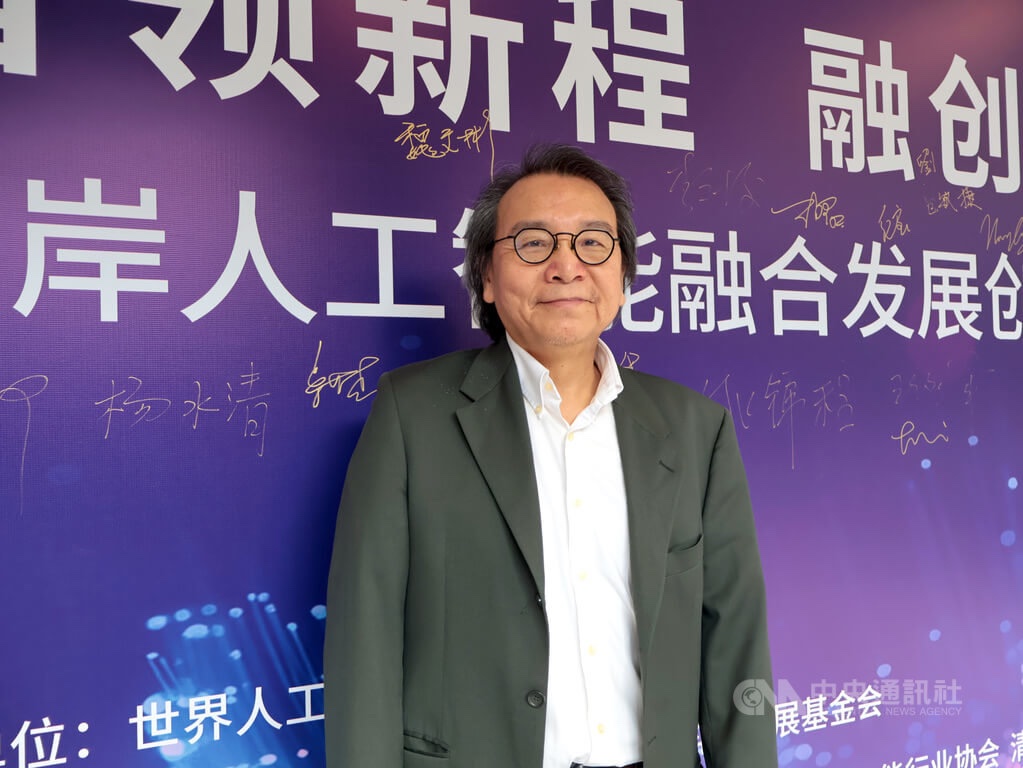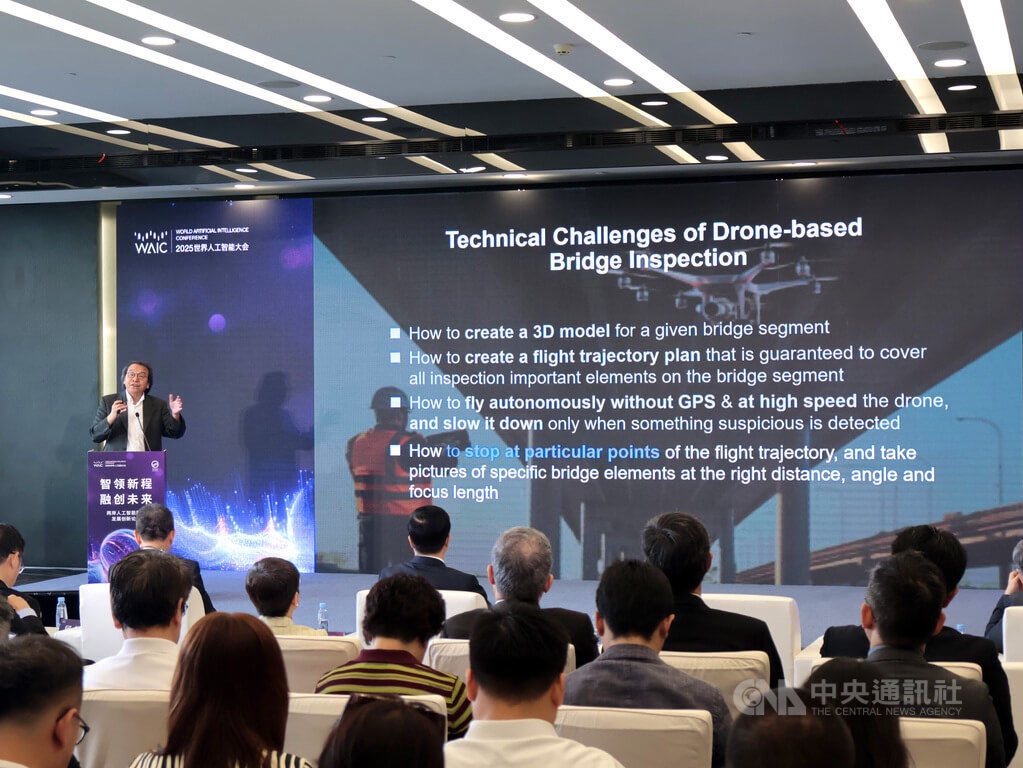 Chiu Chaucer, General Manager of Inventec Corporation (Beijing) Electronic Technology Co., Ltd., giving sideline interview. Photo by Li Ya-Wen, CNA, Shanghai
Chiu Chaucer, General Manager of Inventec Corporation (Beijing) Electronic Technology Co., Ltd., giving sideline interview. Photo by Li Ya-Wen, CNA, Shanghai
The 2025 World Artificial Intelligence Conference (WAIC) Cross-Strait Forum was held this morning at the Shanghai Expo Center. Taiwanese enterprise representatives attending the forum believe it's good to have venues for exchanges and dialogue, and suggest the forum could be organized "more freely" to allow businesses to connect with needed solutions.
The "2025 World Artificial Intelligence Conference and High-level Meeting on Global AI Governance" is being held from the 26th to the 28th (exhibition runs through the 29th). This year's WAIC has established a "Cross-Strait AI Integrated Development and Innovation Exhibition Zone" for the first time, leading to the "Cross-Strait AI Integrated Development and Innovation Forum," where several Taiwanese enterprise representatives participated to present reports on AI-related development issues.
Dr. Que Chih-Ko, Director of Delta Electronics' Delta Research Institute, discussed the respective advantages of cross-strait AI fields in a sideline interview. He said Taiwan's strengths lie in chip manufacturing and assembling servers; the development of large language models or applications based on large language models, which are frequently discussed now, is indeed not as fast in Taiwan as in Mainland China.
Dr. Que noted that due to Mainland China's large market, many companies develop large language models themselves, while Taiwan does less in this area. However, Taiwan has certain advantages from chip manufacturing to AI server assembly, and the two sides can cooperate, especially in various applications. Mainland companies are more proactive and advanced in application development than Taiwan.
Dr. Que believes promoting cooperation in cross-strait AI fields definitely relies on "more exchanges." He said having forums is good, and suggests they could be organized more freely in the future, allowing enterprises to truly understand and connect with needed solutions—not necessarily to close business deals immediately, but to directly find solutions to problems.
Dr. Que stated that exchanges shouldn't just involve dining and chatting. Industry participants would be happy to join workshops or closed-door seminars to discuss issues together and see others' solution approaches. Of course, if one wants to distribute another's solution, they must ensure the technology complies with Taiwan's regulations.
Chiu Chaucer, General Manager of Inventec Corporation (Beijing) Electronic Technology Co., Ltd., said during a joint media interview that both sides have respective advantages in the AI field. Taiwan excels in AI hardware infrastructure, from semiconductors to end devices, while Mainland China has strong computing capabilities and a huge big data and application market.
Inventec exhibited metaverse technology - VRSTATE at the cross-strait exhibition area this time.
Chiu mentioned that AI metaverse involves applications like live streaming and will be an important player in the future digital economy. The Mainland market has characteristics such as large user base, shared Chinese language, and similar cultural background. Many Taiwanese companies involved in metaverse, including Inventec, hope to enter the Mainland market and expect to further develop metaverse applications there.
 Chiu Chaucer, General Manager of Inventec Corporation (Beijing) Electronic Technology Co., Ltd., presenting at the forum. Photo by Li Ya-Wen, CNA, Shanghai
Chiu Chaucer, General Manager of Inventec Corporation (Beijing) Electronic Technology Co., Ltd., presenting at the forum. Photo by Li Ya-Wen, CNA, Shanghai
 Dr. Que Chih-Ko, Director of Delta Electronics' Delta Research Institute, giving sideline interview. Photo by Li Ya-Wen, CNA, Shanghai
Dr. Que Chih-Ko, Director of Delta Electronics' Delta Research Institute, giving sideline interview. Photo by Li Ya-Wen, CNA, Shanghai
 Dr. Que Chih-Ko, Director of Delta Electronics' Delta Research Institute, presenting at the forum. Photo by Li Ya-Wen, CNA, Shanghai
Dr. Que Chih-Ko, Director of Delta Electronics' Delta Research Institute, presenting at the forum. Photo by Li Ya-Wen, CNA, Shanghai

